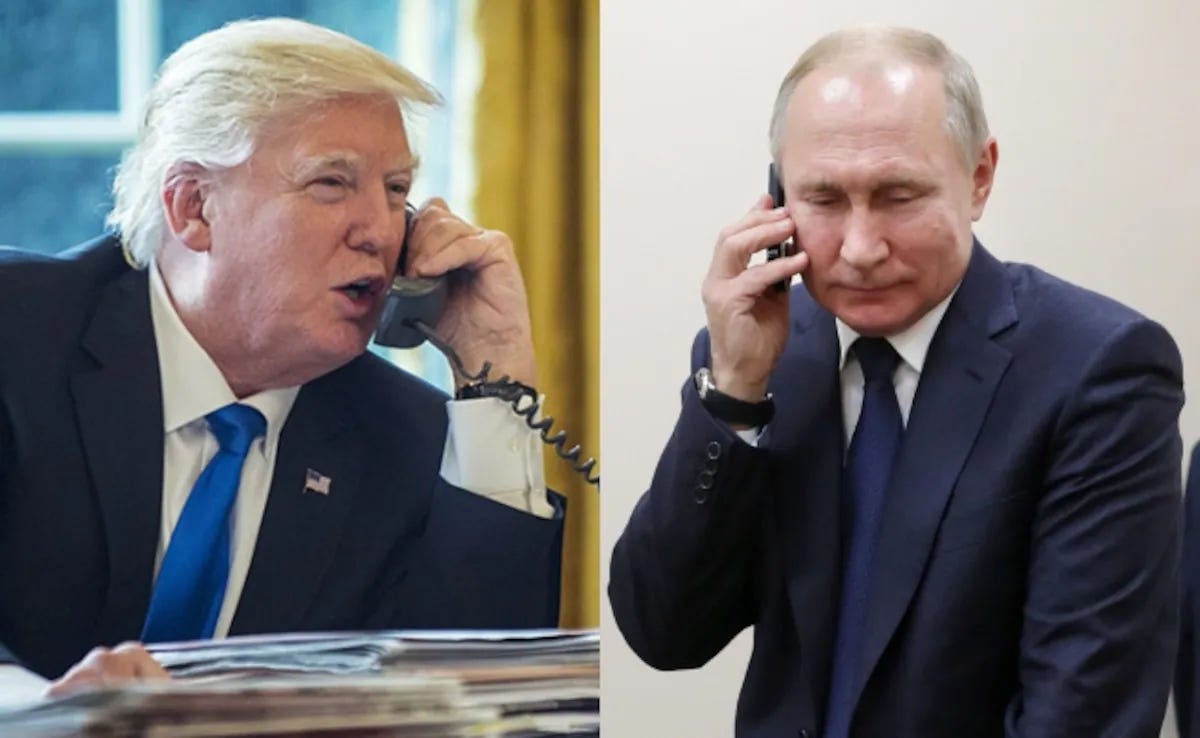How Putin Told Trump, Russia Has to Respond to Ukraine’s Drone Attack
On June 1, 2025, Ukraine executed a bold and unprecedented drone attack targeting four Russian air bases, including a remote facility in Siberia. This operation, described as the longest-range assault since the onset of the full-scale war in 2022, involved 117 drones smuggled into Russian territory. Ukrainian officials reported that the attack destroyed or damaged 41 Russian aircraft, including nuclear-capable strategic bombers, marking a significant escalation in the ongoing conflict.
The scale and audacity of this strike not only exposed vulnerabilities in Russia’s air defenses but also set the stage for a tense exchange between Russian President Vladimir Putin and U.S. President Donald Trump, raising global concerns about potential Russian retaliation.
The Phone Call Between Trump and Putin
In the wake of this dramatic escalation, Putin reached out to Trump in a phone conversation on June 4, 2025. According to Trump’s own account posted on his social media platform, Truth Social, the call lasted approximately one hour and fifteen minutes. During this discussion, Putin explicitly informed Trump that Russia "will have to respond" to Ukraine’s drone strikes on its airfields.
Trump characterized the conversation as "good," though he tempered expectations by noting it would not lead to "immediate peace." Beyond the drone attack, the leaders touched on other pressing geopolitical issues, including Iran’s nuclear program, agreeing that Iran should not possess nuclear weapons. This exchange underscored the gravity of the situation and highlighted Putin’s intent to retaliate, as conveyed directly to the U.S. president.
Implications of Russia’s Response
The Ukrainian drone attack represented a significant blow to Putin’s regime, both militarily and symbolically. By penetrating deep into Russian territory and targeting critical assets like nuclear-capable bombers, the operation exposed glaring weaknesses in Russia’s air defense systems—an embarrassment for a leader who has staked much of his authority on military prowess.
The strike’s sophistication and reach also fueled speculation about external involvement, with some Russian officials and analysts suggesting that Ukraine could not have executed such an attack without assistance from the United States or NATO allies. A former director of Russia analysis at the CIA noted that this perception might dominate Kremlin thinking, potentially prompting a disproportionate response.
Given the strategic importance of the targeted bases, experts have warned that Russia’s retaliation could escalate the conflict further, possibly involving advanced weaponry or even nuclear options, heightening tensions across the region.
Impact on Peace Talks
The timing of the drone attack added another layer of complexity to the already fragile peace process. Just one day after the strike, on June 2, 2025, representatives from Russia and Ukraine convened in Istanbul for another round of peace talks. However, these negotiations yielded no significant breakthroughs, and the drone attack likely contributed to the impasse.
Ukrainian officials framed the operation as a tactical move to pressure Russia into meaningful dialogue, asserting that it demonstrated their capability to strike deep into enemy territory. Conversely, Russian authorities condemned the attack as an act of terrorism designed to sabotage the peace process, accusing Ukraine of bad faith. This clash of narratives deepened mutual distrust, casting doubt on both sides’ commitment to a negotiated resolution and leaving the prospect of peace more elusive than ever.
Reactions and Expert Opinions
The drone attack elicited sharply contrasting reactions from the involved parties and the broader international community. Ukrainian officials celebrated the operation as a resounding success, emphasizing the reported destruction or damage of 41 Russian aircraft as evidence of their growing military prowess.
Russian officials, however, sought to minimize the incident’s impact, downplaying the extent of the losses while branding it a terrorist act. Analysts and experts offered sobering assessments of the fallout: some predicted that Russia might respond with intensified military operations, leveraging the attack to justify further aggression against Ukraine.
Others cautioned that the strike could embolden hardliners in Moscow, complicating diplomatic efforts. The international community, meanwhile, watched with bated breath, aware that the stakes had risen dramatically in an already volatile conflict.
Ukraine’s drone attack on Russian air bases on June 1, 2025, has thrust the Russo-Ukrainian war into a perilous new phase, with Putin’s direct warning to Trump on June 4 signaling Russia’s intent to retaliate. This phone call, detailed by Trump on Truth Social, illuminated the seriousness of the moment and underscored the potential for further escalation.
As the attack disrupted peace talks in Istanbul and inflamed tensions, it highlighted the delicate balance between military strategy and diplomatic efforts. With Russia weighing its response and the world monitoring the situation, the risk of a broader conflict looms large.
The international community remains hopeful for de-escalation, but the path to peace appears increasingly fraught as both sides dig in amidst this latest flashpoint.




